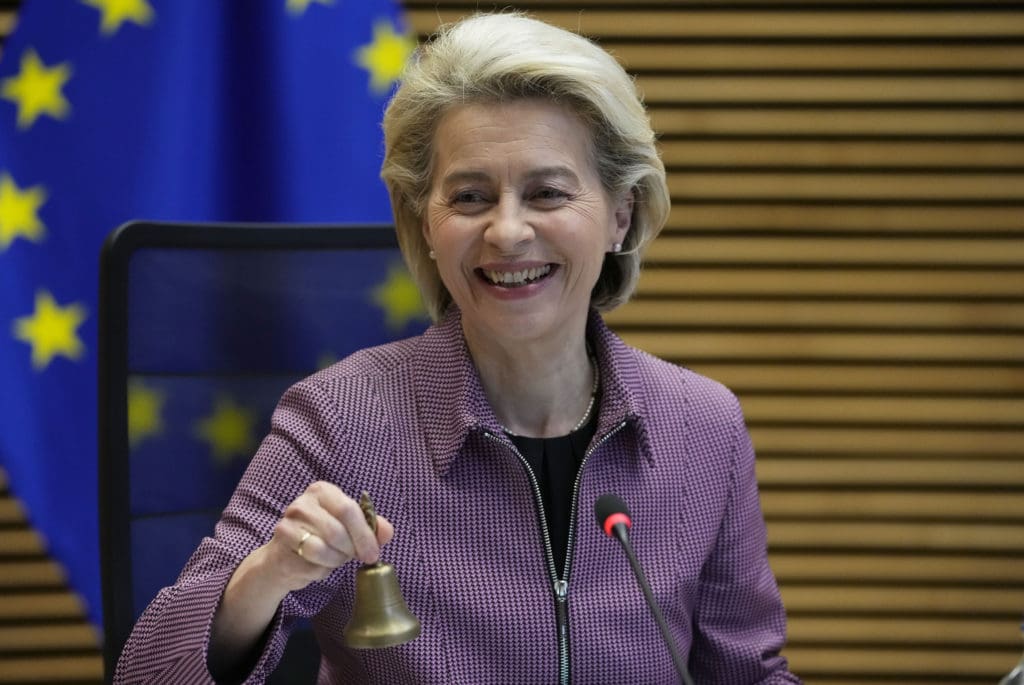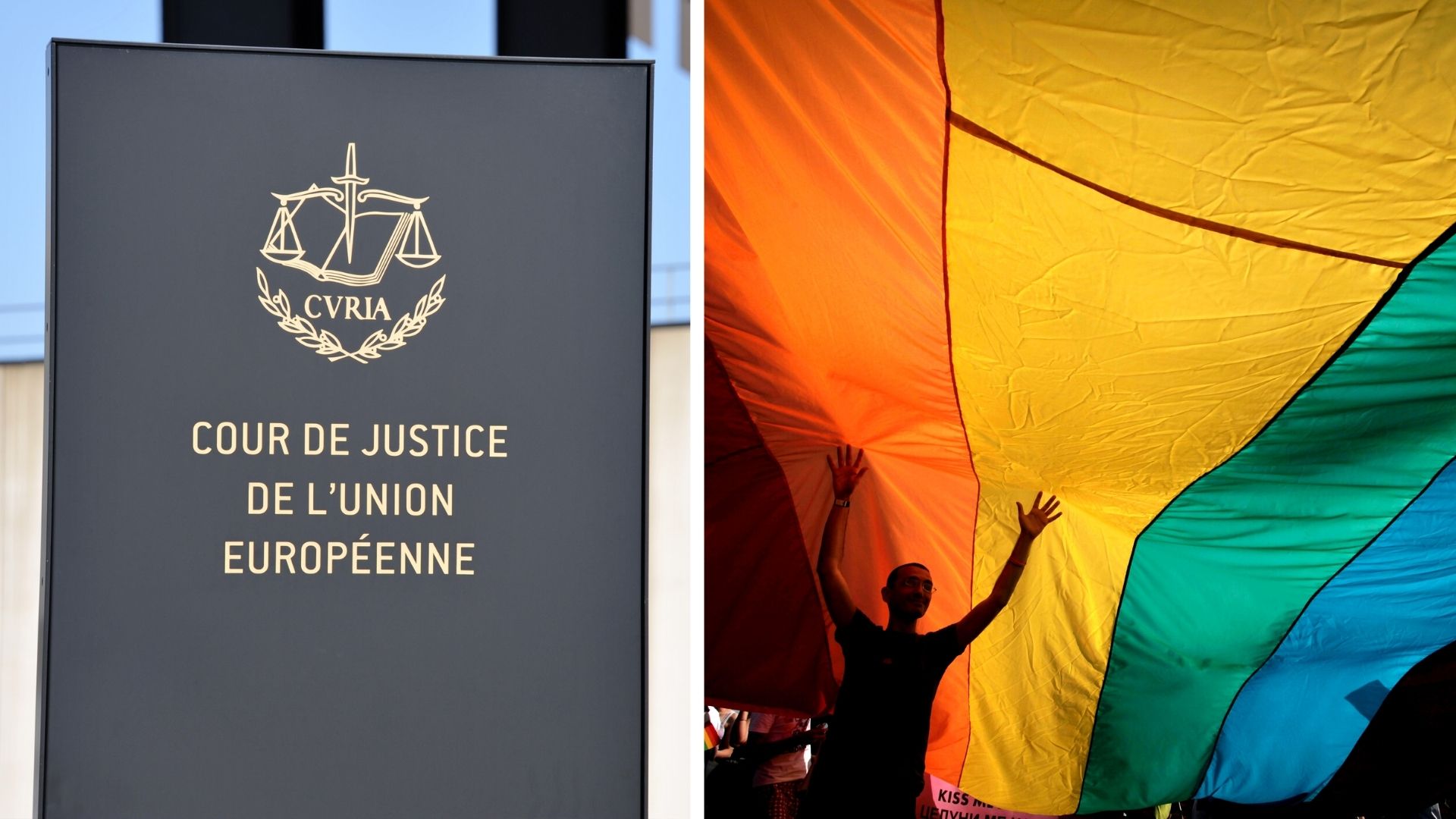The European Court of Justice has now gone a step farther with its Dec. 14 ruling, ordering Bulgaria to acknowledge two women as being the biological mothers of a child as per the birth certificate issued by Spanish authorities, who are well-known for supporting LGBT ideology. This is one more step forward after the 2018 ruling in the Coman & Hamilton case ordering Romania to acknowledge the full legal effects of a “marriage” entered into by two men in Belgium.
Both decisions are making for new EU case law applicable to all member states at a time when the European Court of Justice just affirmed the primacy of its case law over national constitutions in its highly controversial Dec. 21 ruling against the Romanian Constitutional Court, thus making a mockery of Article 4 of the Treaty on European Union, which was designed to ensure that the EU respects the “national identities, inherent with their fundamental structures, political and constitutional” of member states.

The European Court of Justice’s decisions are, however, in line with the European Commission’s new “LGBTIQ Equality Strategy” announced in November 2020 which, in turn, is in blatant violation of another clause of Article 4 where it is said that “competences not conferred upon the Union in the Treaties remain with the Member States.”
The institution of marriage and public policies towards families are competencies which are clearly not conferred upon the Union in the Treaties, and many member states, in particular in the eastern part of the EU, have the nature of marriage enshrined in their constitutions as being the union of a man and a woman. In spite of this, in her 2020 “state of the Union” speech in front of the European Parliament, the German president of the European Commission, Ursula von der Leyen, famously said that, as part of the Commission’s “strategy to strengthen LGBTQI rights,” she would “push for mutual recognition of family relations in the EU.”
“If you are parent in one country, you are parent in every country,” she then said.

In much the same spirit, the European Parliament resolution of Sept. 14, 2021 on LGBTIQ rights in the EU includes the following text:
“Insists that the EU needs to take a common approach to the recognition of same-sex marriages and partnerships (…) including measures to facilitate the recognition of the legal gender of transgender parents;”
“Recalls that EU law prevails over any type of national law, including over conflicting constitutional provisions, and that therefore, Member States cannot invoke any constitutional ban on same-sex marriage or constitutional protection of ‘morals’ or ‘public policy’ in order to obstruct the fundamental right to free movement of persons within the EU in violation of the rights of rainbow families that move to their territory;”
“Calls on the Commission to propose legislation requiring all Member States to recognise, for the purposes of national law, the adults mentioned on a birth certificate issued in another Member State as the legal parents of the child, regardless of the legal sex or the marital status of the adults;”
“Supports the Commission’s commitment to propose a legislative initiative with the aim of extending the list of ‘EU crimes’ to hate crimes and hate speech, including when targeted at LGBTIQ persons, as well as the proposal on the mutual recognition of parenthood and possible measures to support the mutual recognition of same-gender partnership between Member States;”
“Calls on the Commission to take concrete measures to ensure freedom of movement for all families, including rainbow families, in line with the judgment in the case of Coman & Hamilton, which states that the term ‘spouse’ as used in the Free Movement Directive is also applicable to same-sex partners; requests that the Commission examine whether the Member States comply with the Coman & Hamilton judgment and take enforcement action under Article 258 TFEU against those that do not comply;
“Calls on the Commission to take enforcement action against Romania over its ongoing failure to comply with this judgment and the lack of legal remedy which forced the plaintiff to resort to the ECtHR for redress.”
As the European treaties do not give the EU institutions any competencies for this matter, the unelected European Court of Justice is now making up for this through case law, willfully ignoring both the letter and the spirit of the European Treaties and of the EU legislation enacted by the elected representatives of the EU-27 sitting in the Council of the European Union together with the elected European Parliament, and going contrary to the obvious lawmaker’s intent behind existing EU law.
When the U.S. Supreme Court imposed “gay marriage” on all 50 American states, Justice Scalia famously called the move a “judicial Putsch” on democratic institutions. In the European Court of Justice’s case, it is both a judicial putsch and an attack on member states’ sovereignty.

Since the EU is not a federation, at least not yet, the EU’s top court has been acting with smaller steps based on the treaties’ general principles. And this is happening although the current European Court of Justice president, Belgian judge Koen Lenaerts, was himself warning in 2010 that the “application of general principles can operate only when it is uncontested that the conflicting national law falls within the scope of EU law. Otherwise, the boundaries of the EU legal order would be continually extended to the detriment of national sovereignty.”
In the Bulgarian case that was at the center of the European Court of Justice’s Dec. 14 ruling, a child born in 2019 in Spain had a birth certificate with two mothers and no father on it, which amounts — as a matter of fact and in the eyes of the authorities in most countries — to such a birth certificate containing false information. Both mothers on the Spanish birth certificate were referred to as being the child’s parents.
When asked to issue a Bulgarian birth certificate for the child, the Sofia municipality asked the person who appeared as the Child’s Bulgarian mother on the Spanish birth certificate to provide evidence of the child being her own biological child, as birth certificates in Bulgaria only have one box for the mother and one for the father.
The person referred to as the child’s Bulgarian mother on the Spanish birth certificate, therefore, took the case to the administrative court in Sofia, which in turn asked the European Court of Justice whether the authorities’ refusal to issue a Bulgarian birth certificate based on the Spanish certificate’s obviously false information infringed the right of every citizen of an EU member state to be a citizen of the Union and every EU citizen’s right to their freedom of movement within the Union, and also whether it infringed their rights under the Charter of Fundamental Rights of the European Union.
In its judgment delivered by its Grand Chamber, the European Court of Justice considers that any EU member state of which a child is a national is obliged to acknowledge “as is” the birth certificate from another member state or any other document that allows the child to move and reside freely in any part of the EU with any of the two persons mentioned as being the child’s parents on his or her birth certificate.
As one can read in the Court’s press release explaining its decision: “Admittedly, a person’s status is a matter which falls within the competence of the Member States, which are free to decide whether or not to allow marriage and parenthood for persons of the same sex under their national law. In exercising that competence, each Member State must comply with EU law, in particular the Treaty provisions on Union citizens’ freedom of movement and of residence, by recognising, for that purpose, the civil status of persons that has been established in another Member State in accordance with the law of that other Member State.”
And that means that the European Parliament’s and the European Commission’s common goal has now been achieved through the backdoor with the European Court of Justice’s judicial activism, without any Member States’ democratically-elected representatives having a say or a remedy other than simply not applying the court’s ruling.
In the above-mentioned earlier case involving a Romanian man and his American “husband” (the Coman & Hamilton case), in 2018, the judges in Luxembourg also acknowledged that “a person’s status, which is relevant to the rules on marriage, is a matter that falls within the competence of the Member States and EU law does not detract from that competence”, but they nonetheless set an “obligation to recognise such marriages, concluded in another Member State in accordance with the law of that state, for the sole purpose of enabling such persons to exercise the rights they enjoy under EU law.”
In this case, the question the European Court of Justice had to answer concerned the effect of a “marriage” between two men contracted in Belgium in 2010 on their right to free movement across the EU. This right applies to citizens of EU countries as well as to their spouses when the latter are not EU citizens. But when Romanian Adrian Coman had sought to obtain a residence permit for his American partner on the grounds that he was his “spouse” under Belgian law, he was opposed to a refusal by the Romanian authorities as in Romania one can only be married to a person of the opposite sex.
However, according to the European Court of Justice, in EU law the term “spouse” “is gender-neutral and may therefore cover the same-sex spouse of the Union citizen concerned,” and being someone’s “spouse” in one member states makes you a family member of that person in all member states, whether a given Member State has chosen to extend the notion of marriage to same-sex unions or not. In any case, according to the EU court, “a Member State cannot rely on its national law as justification for refusing to recognise in its territory (…) a marriage concluded by that national with a Union citizen of the same sex in another Member State in accordance with the law of that state.”





